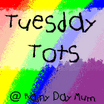Articulation therapy helps a person learn how to pronounce sounds and improve speech intelligibility. Articulation therapy is very structured and follows a specific process. The first step involves auditory training or being able to hear the sound. The next step is to be able to correctly say the sound in isolation, then syllables, words, sentences and conversation.
Language therapy treats receptive language (what a person understands), expressive language (what a person expresses or says) or a combination of both. Receptive language can include skills such as following directions and identifying pictures. Expressive language activities include making requests and naming objects.
Voice therapy treats disorders associated with the speaking voice. As a result of a voice disorder, the voice can sound hoarse, raspy, rough, or there may be no voice at all. Voice disorders can be caused by abuse to the speaking voice, trauma, or illness. Some of these disorders include vocal nodules, vocal polyps, vocal cord paralysis, and laryngitis.
Fluency therapy helps a person learn to speak more fluently and easily. It is also called stuttering therapy. Getting speech therapy for fluency helps a person become more confident when speaking to others and when speaking in public.
Oral motor and swallowing therapy teaches a person to use and strengthen the muscles in the mouth that help with speech production and swallowing food and drink. Illness and injury are some of the reasons why the muscles used for speech and swallowing become weak.
A speech-language pathologist (SLP) provides speech therapy for their clients and patients, and this includes both adults and children. The overall goal for those who are getting speech therapy is to develop and/or regain speech and communication skills to the best possible level. The length of therapy mostly depends on the severity of the communication disorder and the motivation of the client or patient.

 RSS Feed
RSS Feed



